
DAY

DAY 2 Monday, May 5, 2008 - While flying from JFK, New York to Cairo, Egypt,

We finally saw the North coast of Egypt. Then a few minutes later Cairo.
The Nile running through Cairo, Egypt.
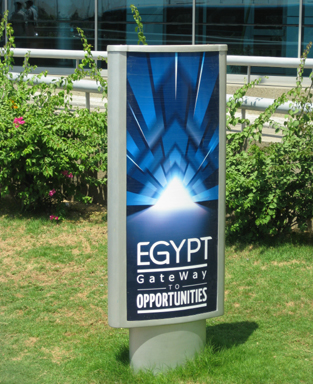
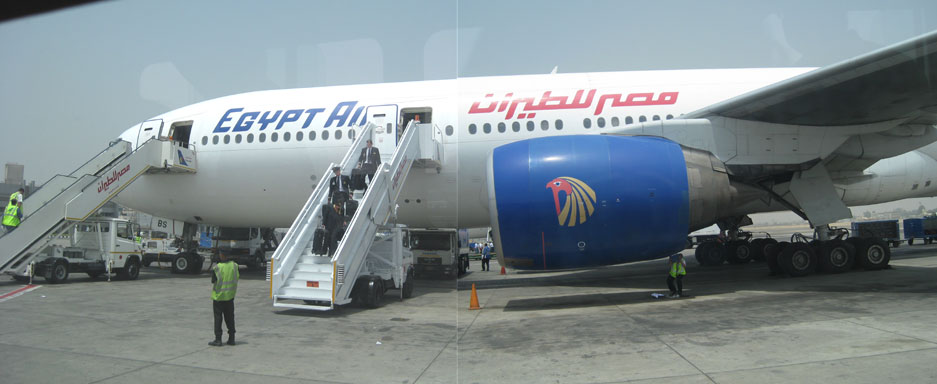
Disembarking from our Egypt Air plane at Cairo Airport.
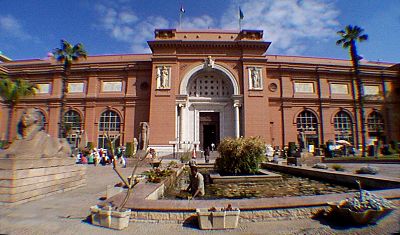
We visited the
We stayed at the Cairo Marriott Hotel & Omar Khayyam Casino which used to be the palace of a queen, 16 Saray El Gezira Street, Cairo, Egypt. It sits on the island of Zamalek in the Nile and is the Middle East's largest hotel.
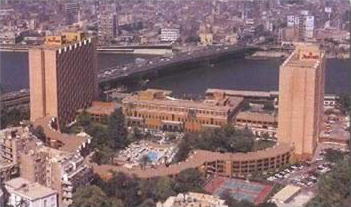
The extravagant entrance to the Cairo Marriott Hotel, formerly the Gezir Palace, is built along the lines of Spain's Alhambra as a palace for the Empress Eugenie of France.
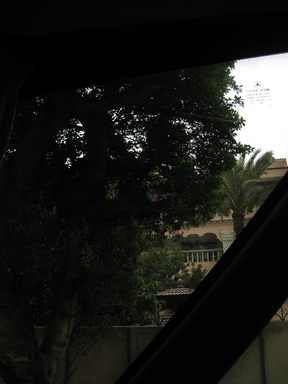
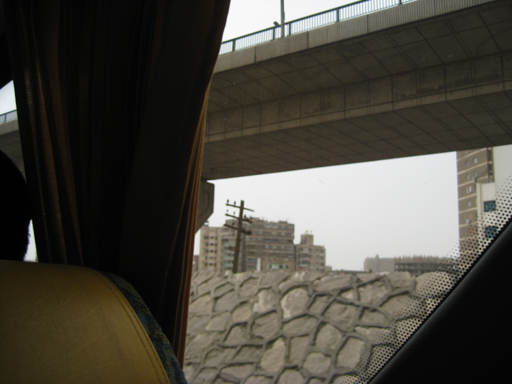
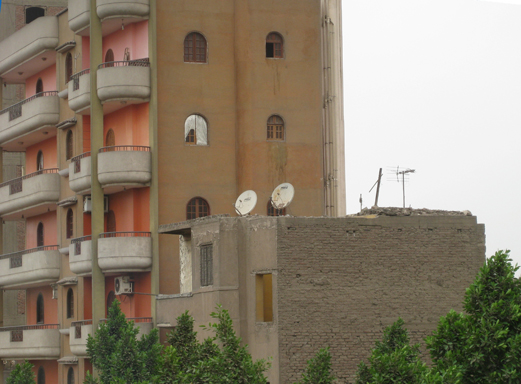
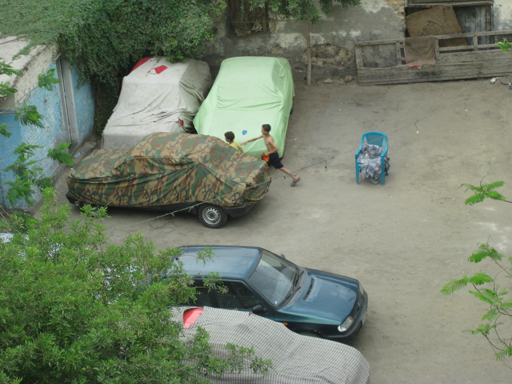

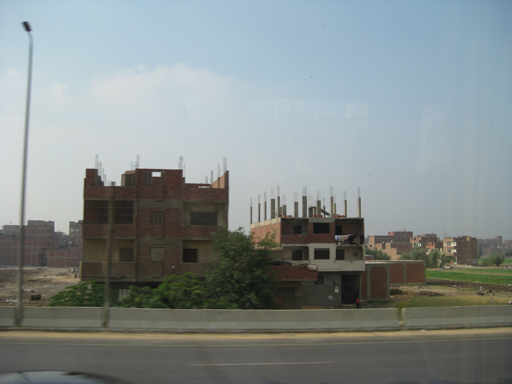
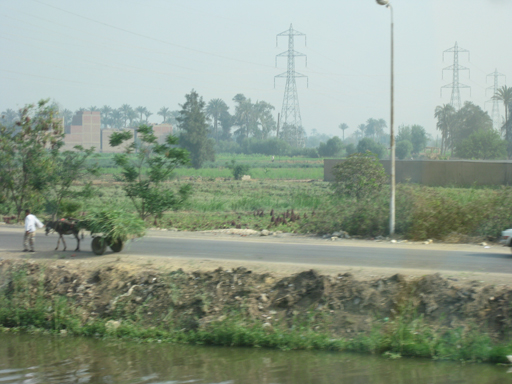
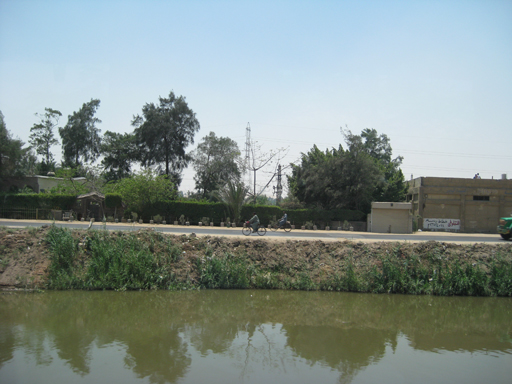
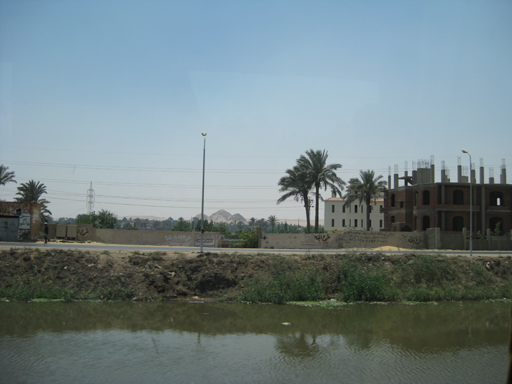
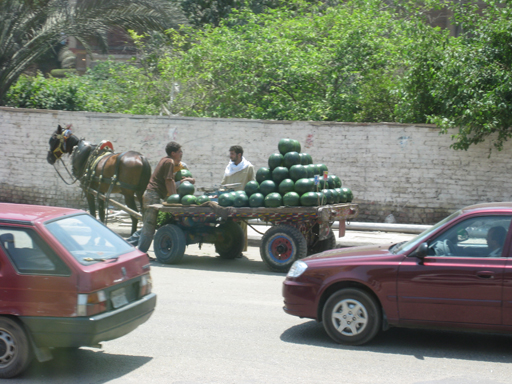
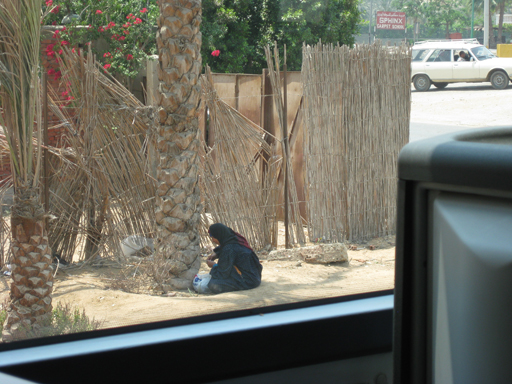
One of the greatest cities of the ancient world, Memphis was founded around 3100 BCE, perhaps by the Pharaoh Menes who united Upper and Lower Egypt for the first time. It was filled with palaces, gardens, and temples. Apart from the royal pyramids and other tombs of its necropolises, much of it is permanently lost.
.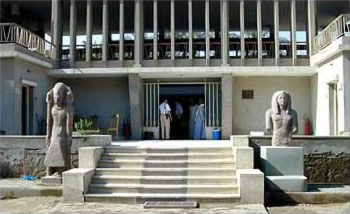
Entrance to the small museum which houses the Ramses Colossus.
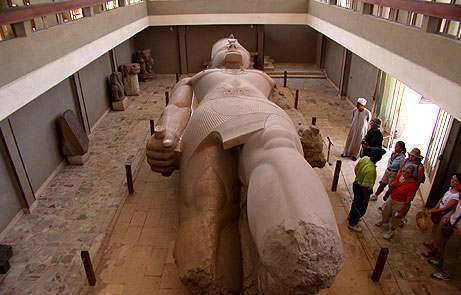
The limestone colossus of Ramses II stretches more than 40 feet (12 meters) long even without its missing legs. Larger than life as a ruler, builder, and sire, the pharaoh spread his likeness across Egypt during an epic reign. Ramses the Great ruled for more than 60 years (circa 1279 to 1213 B.C.), fathered at least 90 children, and is credited with bringing his empire prosperity and peace. Photograph by Nancy Gupton.
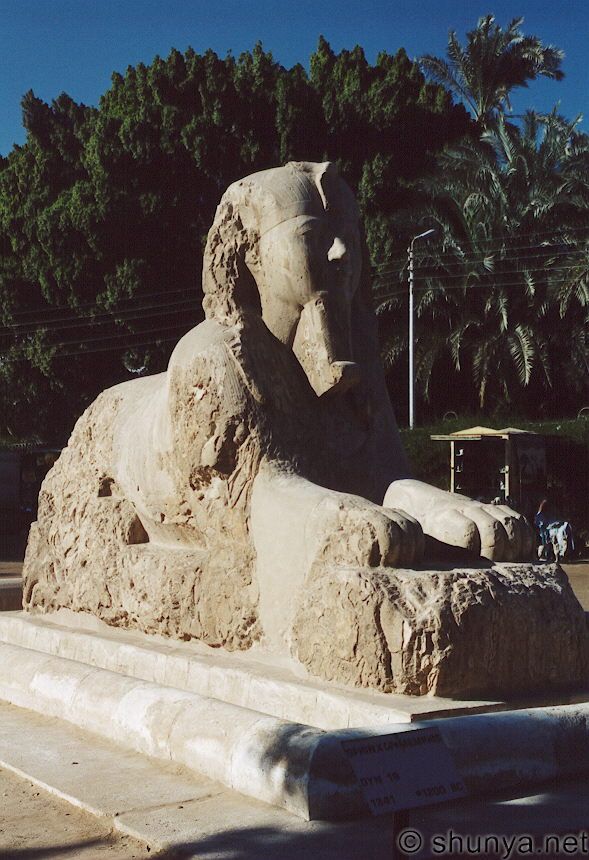
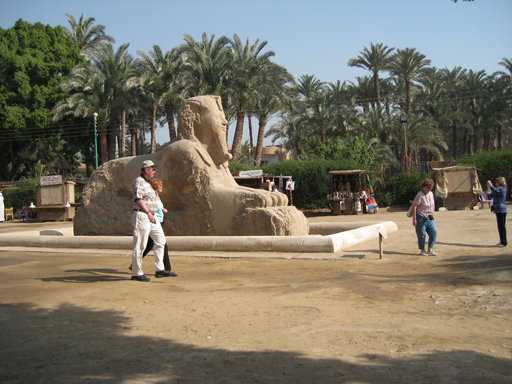
Alabaster
Sphinx
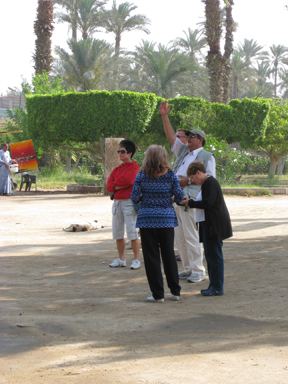
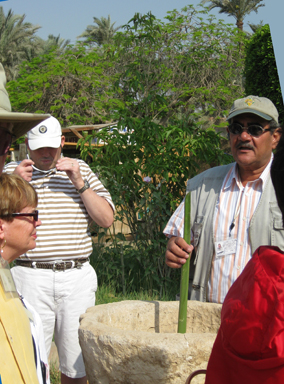
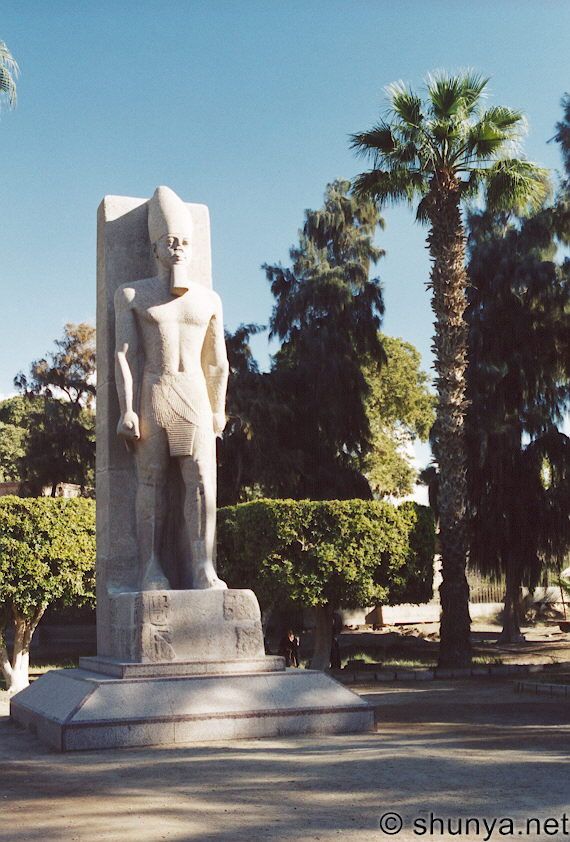
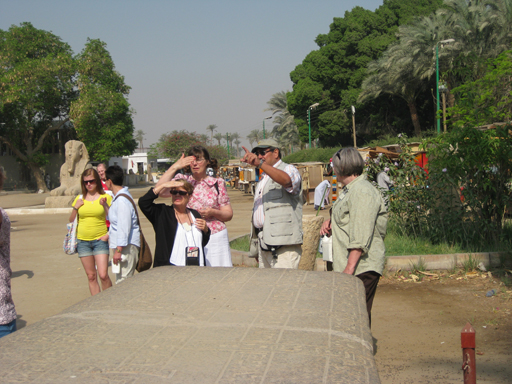
Ramses II statue
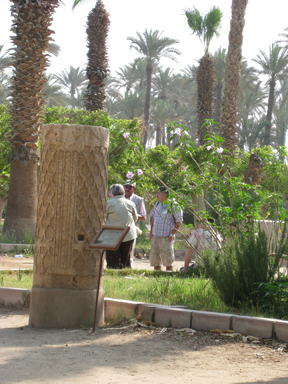
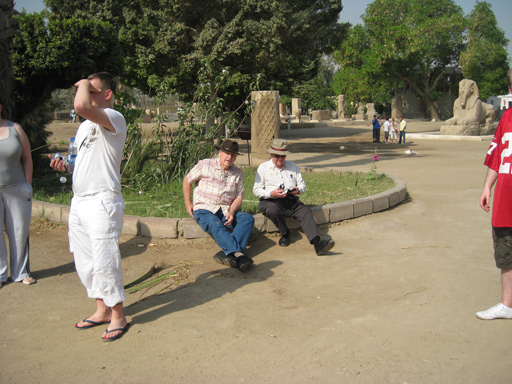
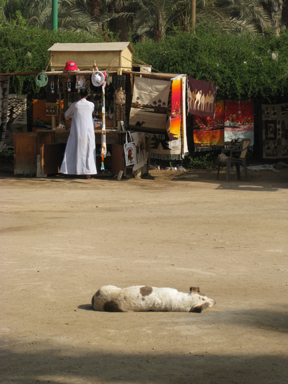
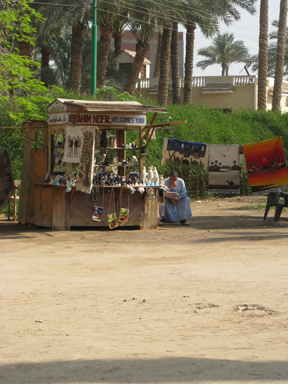
We visited Saqqara. It is one of the oldest step-pyramids in the world by Imohotep for pharaoh Zoser in 2650 BC. The Step Pyramid is impressive in its own way, and it has a large sandy area like a giant sandbox for the kids to play in.
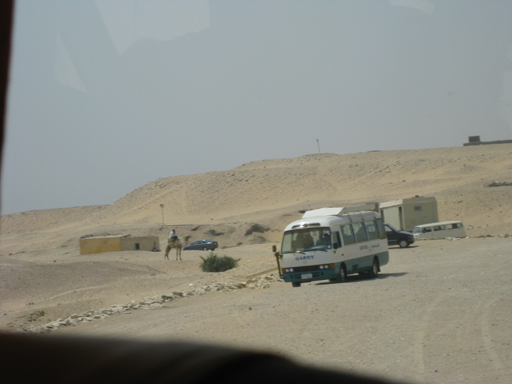

The Step Pyramid
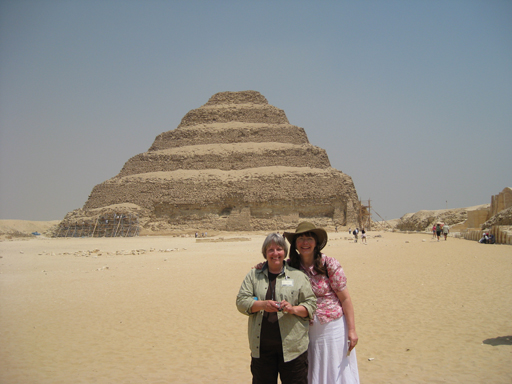
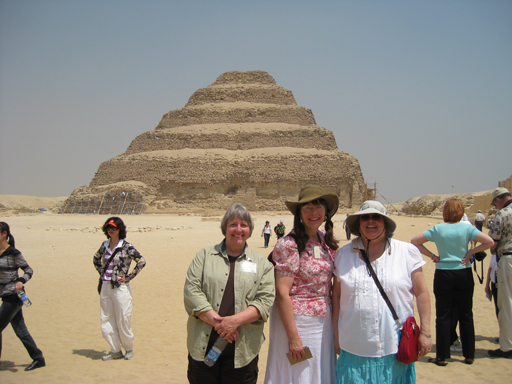
The Pyramids of Giza are the most famous monuments of ancient Egypt. In Egyptian the site is known as "El-Ahram" (the pyramids). These massive stone structures were built around 4500 years ago on a rocky desert plateau close to the Nile. But the intriguing Egyptian pyramids were more than just tombs for kings. The mysteries surrounding their symbolism, design and purpose have inspired passionate debate. It is likely that many of these mysteries will never be solved.
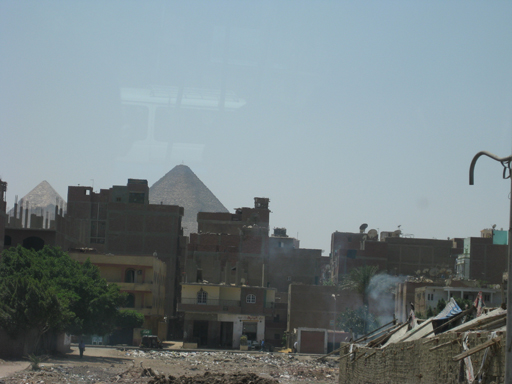
The Giza Pyramids in the distance.
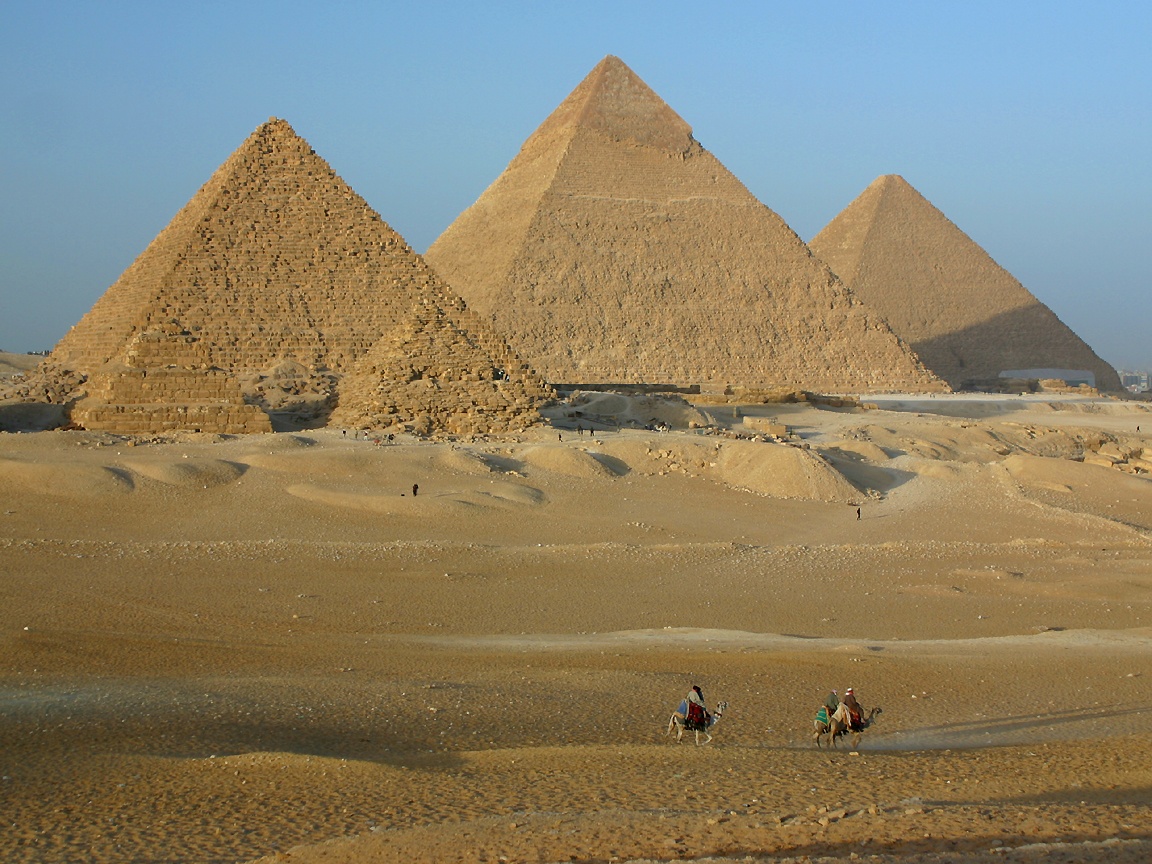
Pyramids of Giza
.svg.png)
Map of Giza
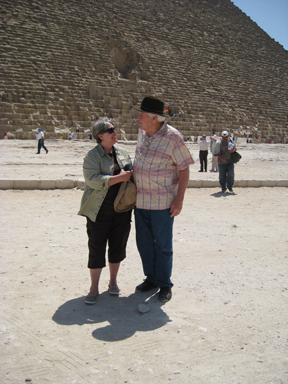
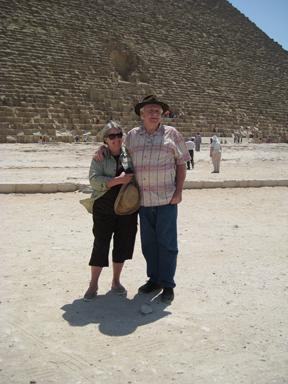
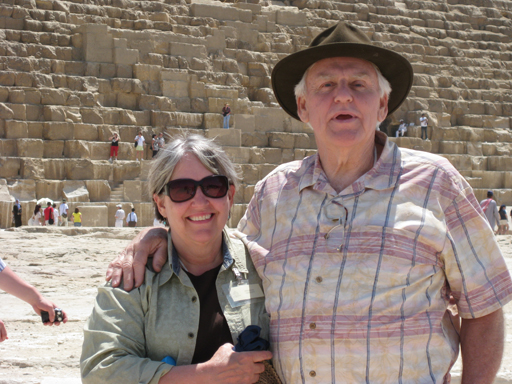
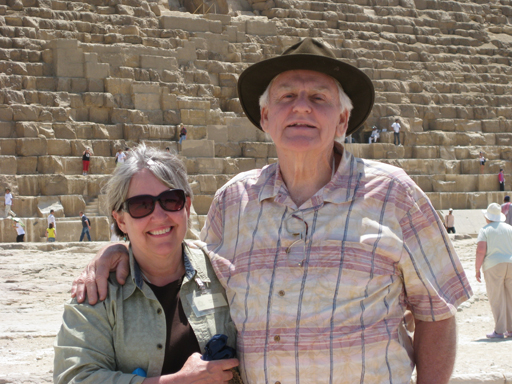
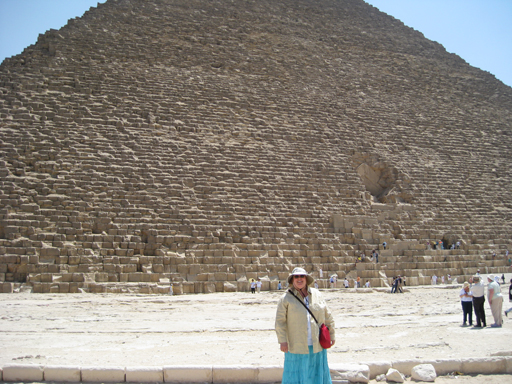
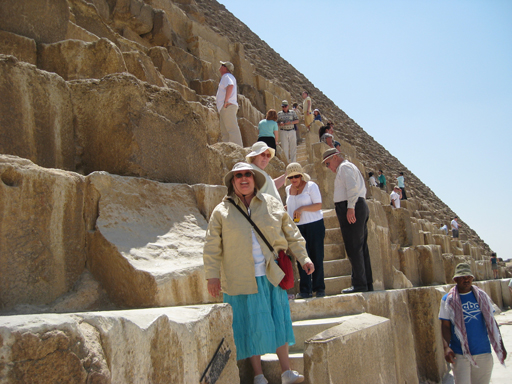
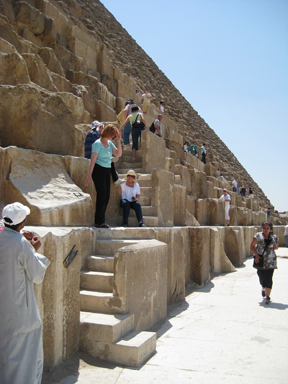
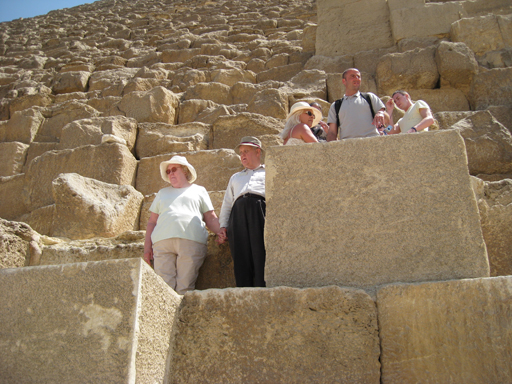
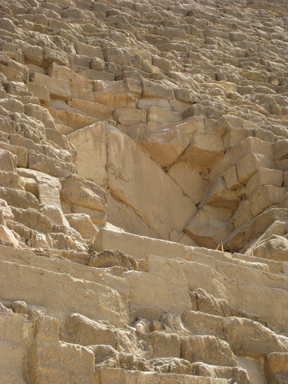
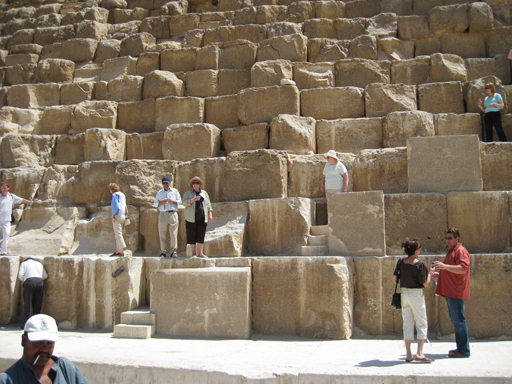
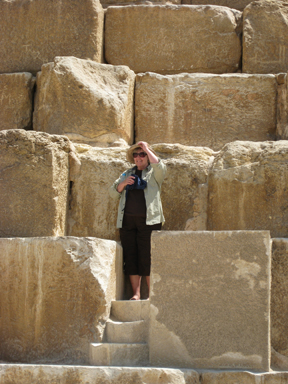
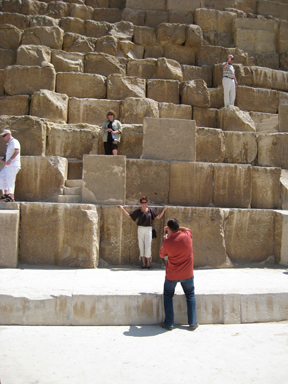
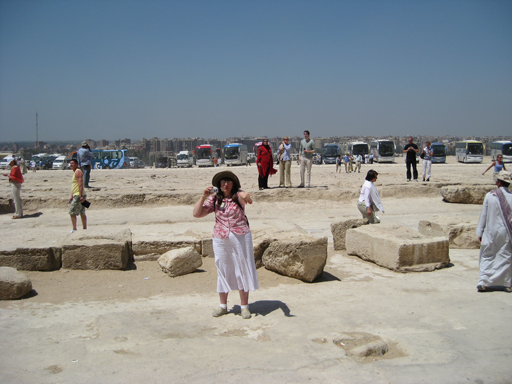
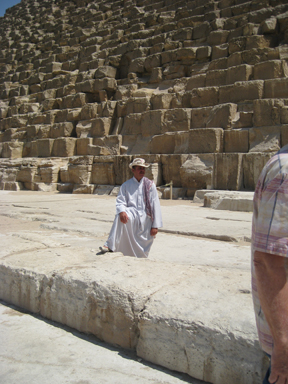
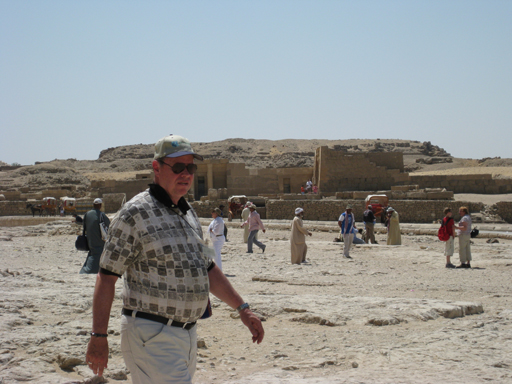
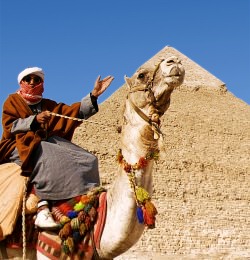
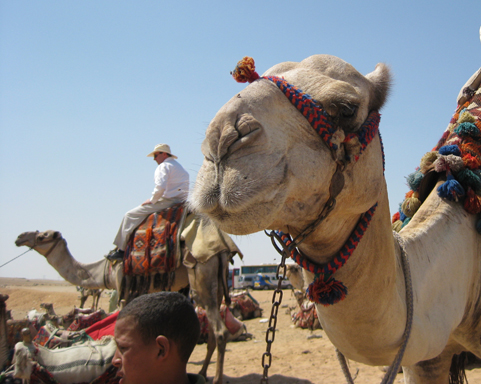
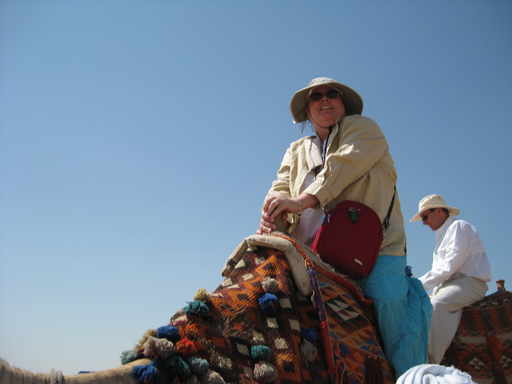
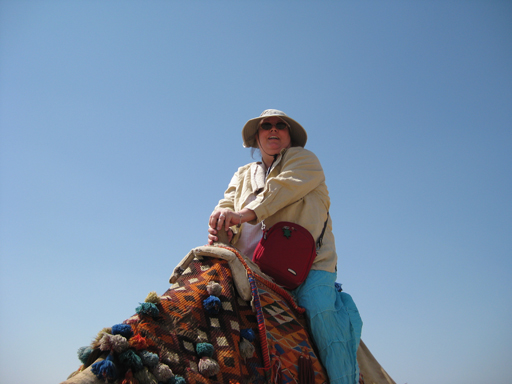
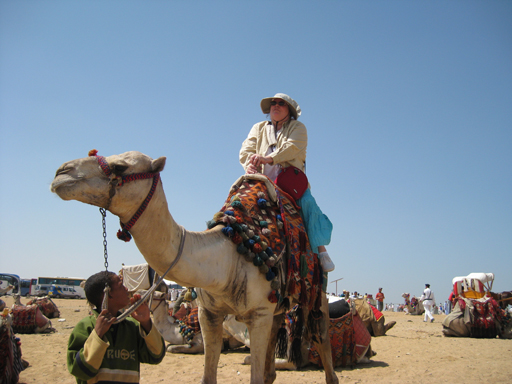
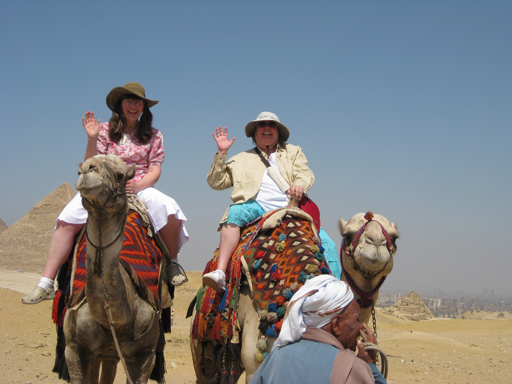
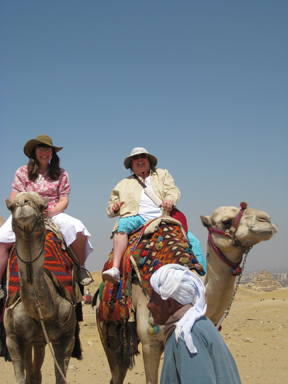

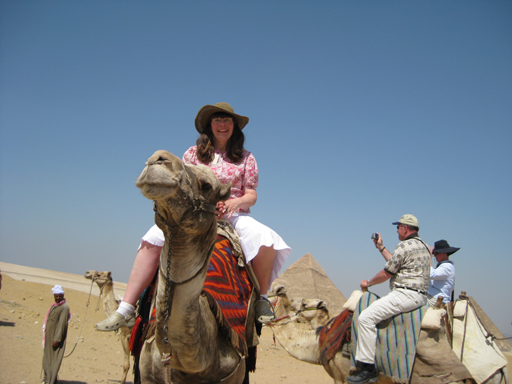
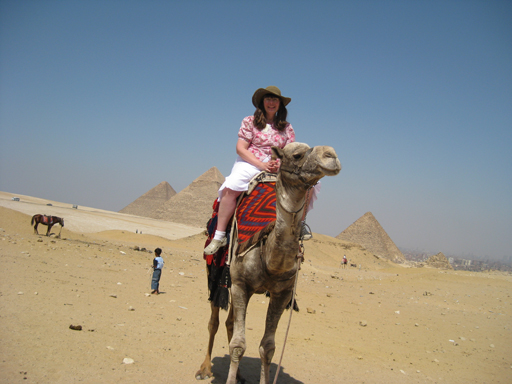
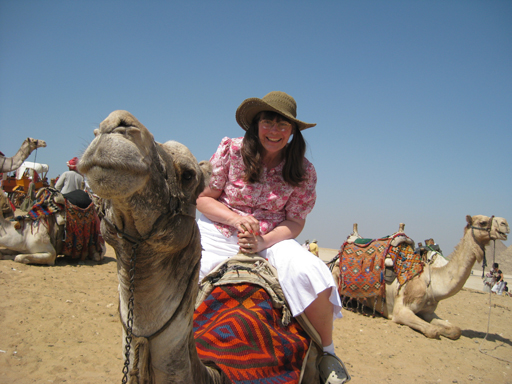
The Sphinx at Giza.
 Shopping
opportunities included the papyrus factory and jewelry shops where you can get
a cartouche with your name in hieroglyphs.
Shopping
opportunities included the papyrus factory and jewelry shops where you can get
a cartouche with your name in hieroglyphs.

The Papyrus Factory
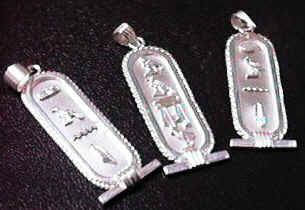
Cartuches
If you come to Egypt and don't buy a papyrus it's just as if you have not seen the Pyramids. You can get it in almost every store you enter, on the street. There is a big difference between those bought on the street and in qualified stores. In most shops you are going to buy a nice print. On the street, you can only get cheap and lousy prints. Still, you can find some better than the other. On the street don't forget to bargain! These are nice souvenirs and people like it. In the Papyrus Factory it was great to see the papyrus plant and all the "machines" that were necessary for production. Papyrus is very expensive.
Wednesday, May 7, 2008 - FLIGHT TO LUXOR, VALLEY OF THE KINGS, LUXOR TEMPLE, KARNACK TEMPLE, FLIGHT TO CAIRO
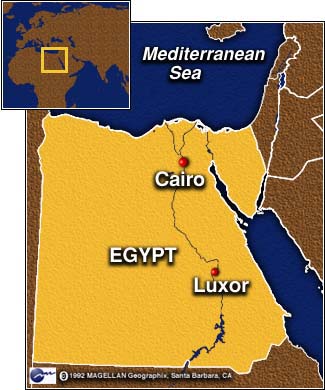
Early in the morning, we flew south to Luxor.
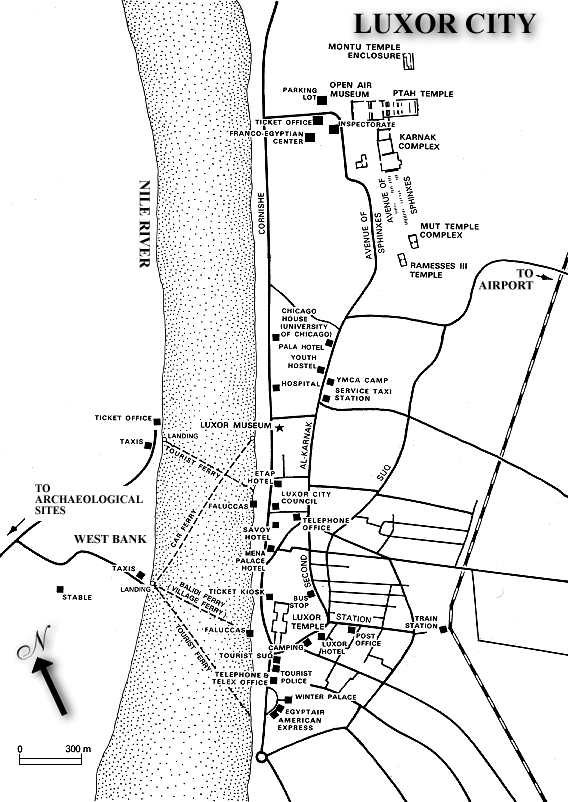
Actually, what most people think of as Luxor is really three different areas,
consisting of the City of Luxor on the east side of the Nile, the town of Karnak
just north of Luxor and Thebes, which the ancient Egyptians called Waset, which
is on the west side of the Nile across from Luxor.
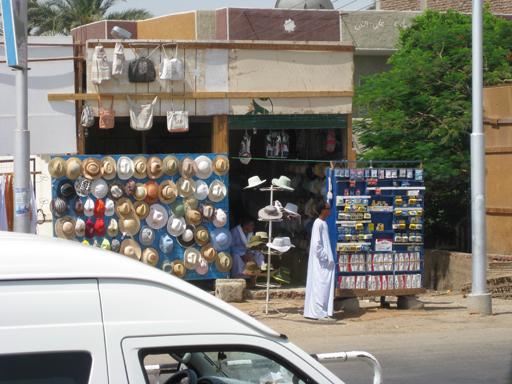
Hats are a necessity for the hot Egyptian Sun. There were many shops selling them to the tourists.
We visited the famous Valley of the
Kings where many Pharaoh's were buried.
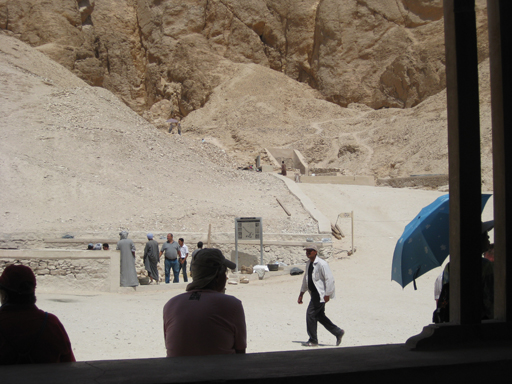
This desert valley contains the ancient burial ground of many Egyptian pharaohs. Among over 60 royal tombs is the famous Tomb of Tutankhamen that was found in pristine condition. When you get your ticket for the Valley, you get to pick 3 tombs to visit and more access can be bought if needed. Your ticket is torn on the corner to indicate how many you have visited. You might want to read up to make sure you see what you really want to. The tomb of King Tut is a separate entrance fee, about $10 US. The Valley is not to be missed on your visit to Egypt.
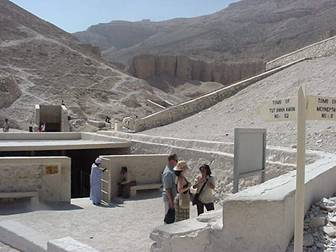
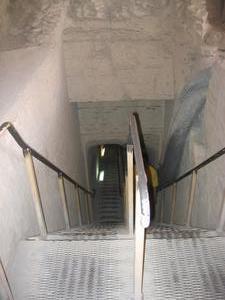
King Tut Tomb in the Valley of the Kings
Tomb entrance stairway
Tomb of King Tutankhamun (KV62) - It's one of the smallest tombs, but if you've seen all the King Tut stuff in the museums, you have to see to the tomb.
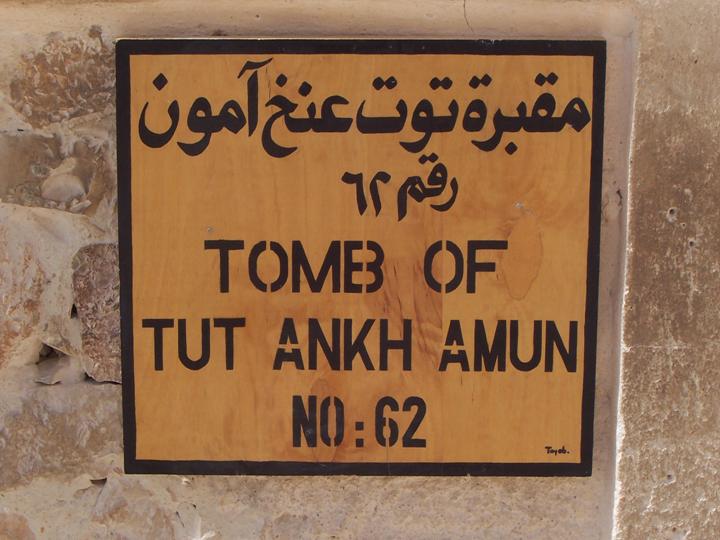
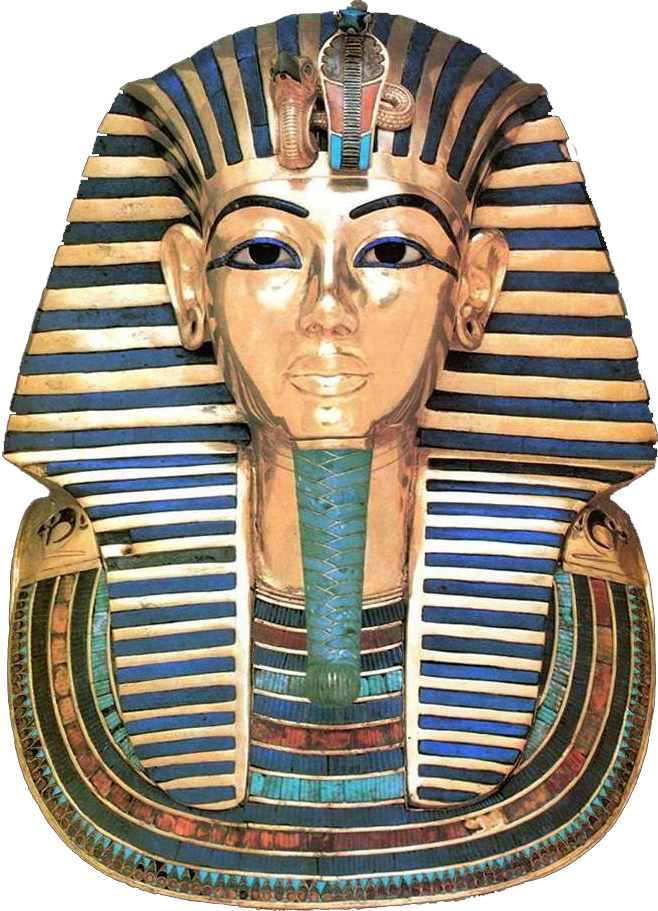

King Tut's Death Mask
Map of his tomb
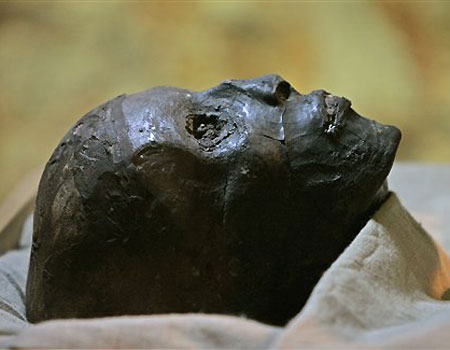
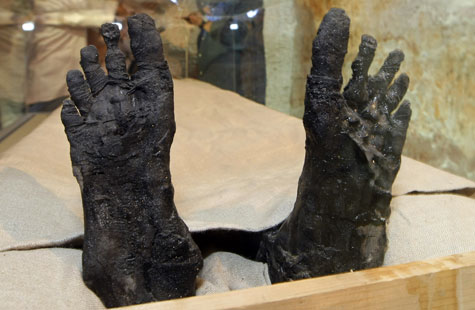
Tut himself is in a glass cabinet with only his head and feet showing from beneath
a white cloth.
Tomb of Tawosret and Sethnakht (KV14) - Queen Tawosret was the Chief Wife of Seti II who reigned briefly as pharaoh at the end of Dynasty XIX after the death of her son Siptah. Her tomb was subsequently usurped by the first king of Dynasty XX, Sethnakht. More photos from Paul Roberts, M.A. and EgyptSites.co.uk
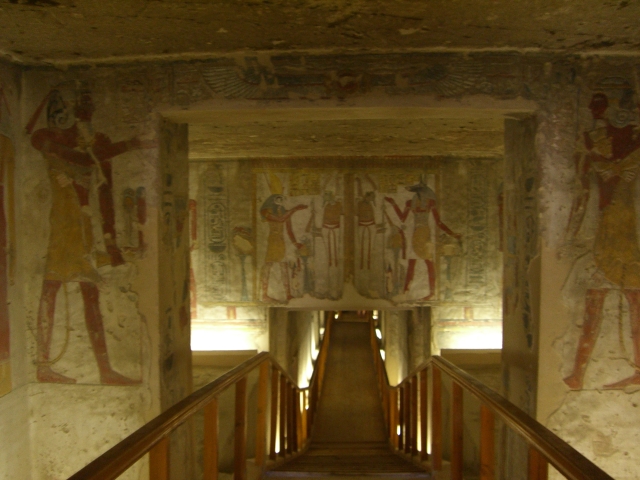 .
.
Entry Corridor to the tomb of Tawosret and Sethnakht
Tomb of Seti II (KV15) - Seti II Userkheperure Setepenre, the son of Merenptah, lived in unsettled times, perhaps reflected in the unfinished state of his Theban tomb. More photos from Paul Roberts, M.A. and Tour Egypt.
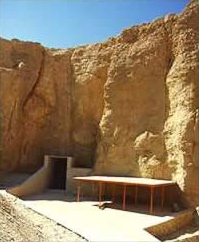
Tomb of Rameses III (KV11) - The tomb is 125 meters long and follows typical plans of the Nineteenth Dynasty's tombs, though it has an unusual number of annexes. More photos from EgyptSites.co.uk.

There are more than 60 tombs in the Valley of the Kings. Read more about these tombs at EgyptSites.co.uk.
The Alabaster Shop - The art of turning an alabaster rock into a vase.
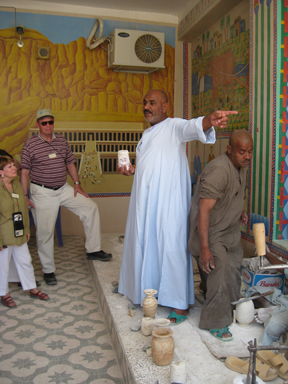
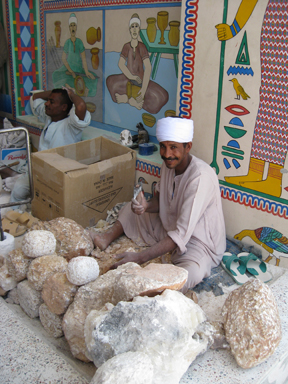

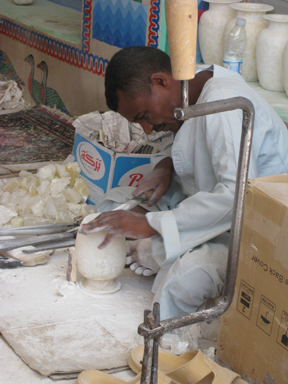
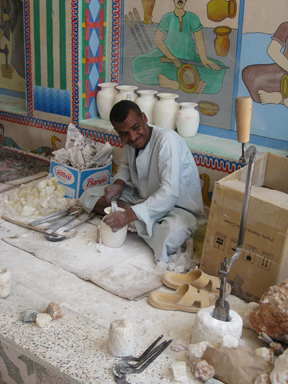
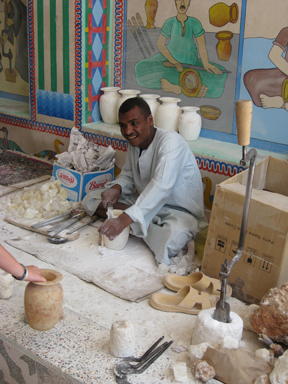
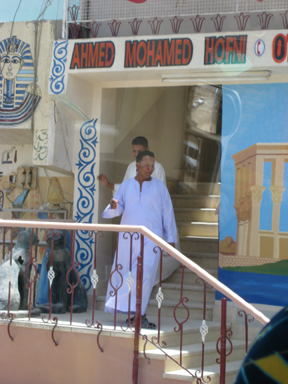
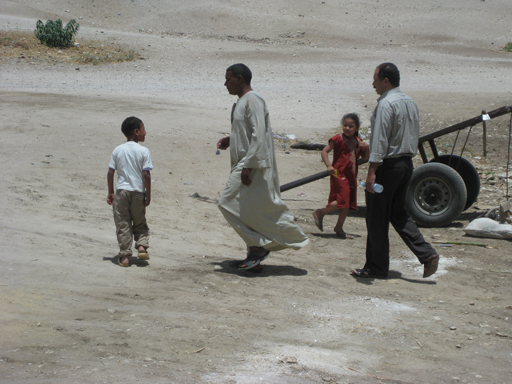
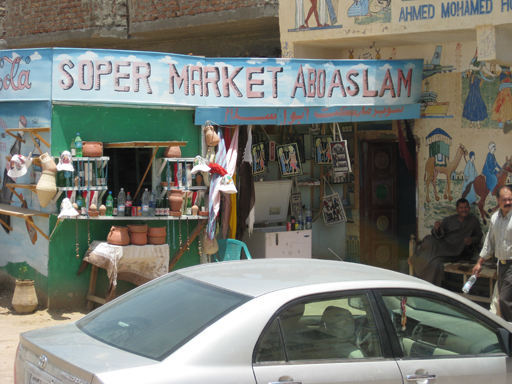
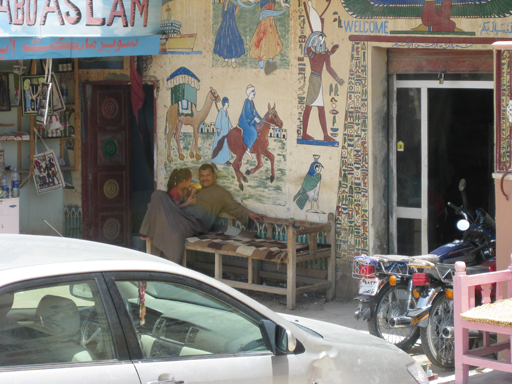
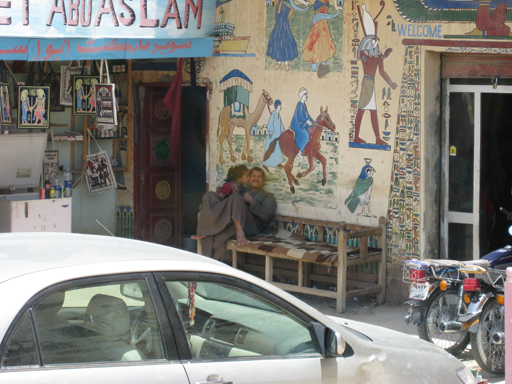
Luxor Temple - It was amazing and there was so much detail. The only thing that I would recommend is that if you are going to Karnak Temple too I would go to Luxor Temple first otherwise it makes Luxor Temple feel really small. We walked around the whole of Luxor Temple in less then 1 hour. It looks better from the main road then it does from inside. I recommend going after dark, it looks a lot better.
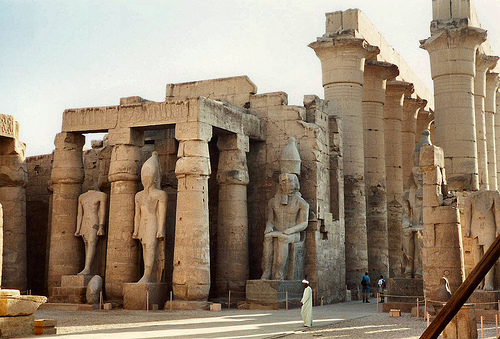
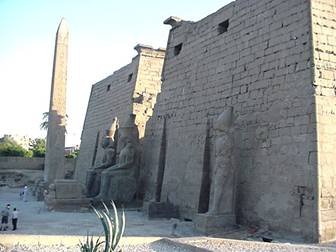
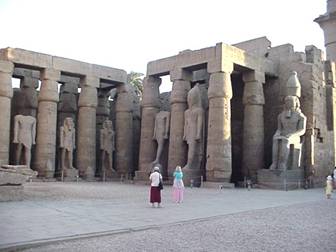
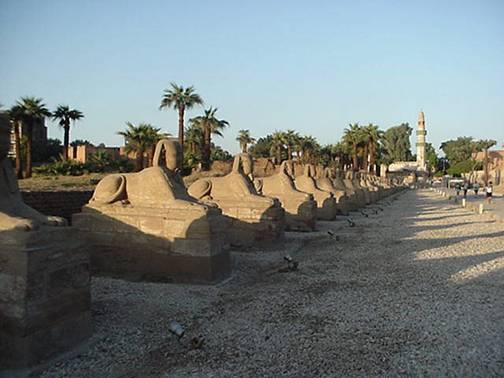
North of Luxor city is the spectacular Temple of Karnack.
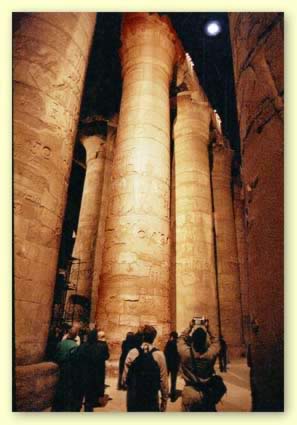
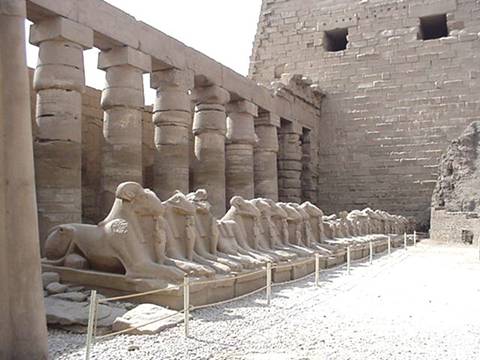
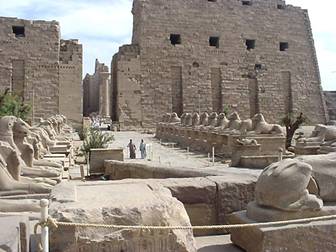
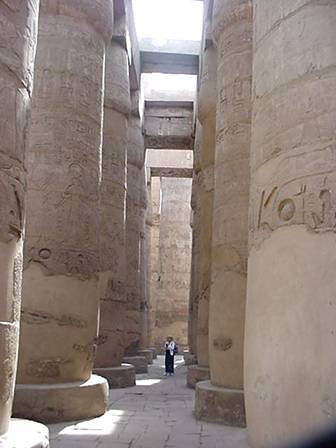
Here we were astonished
 In the evening, flight back to
In the evening, flight back to
DAY 15 Sunday,
May 18, 2008 - ST. SERGIOS CHURCH
See our visit to Israel See our visit to Jordan Return to Holtzendorff Vacation Pictures Return to Top
Web Hosting and Design by Deborah Holtzendorff ©Copyright 2008 ArticHosting.com